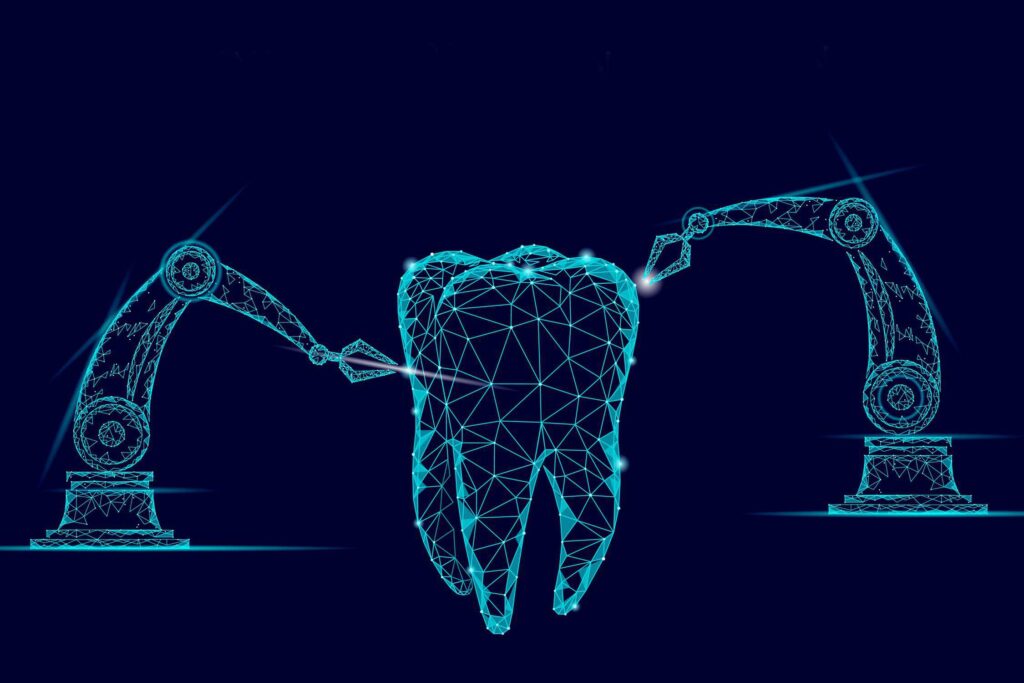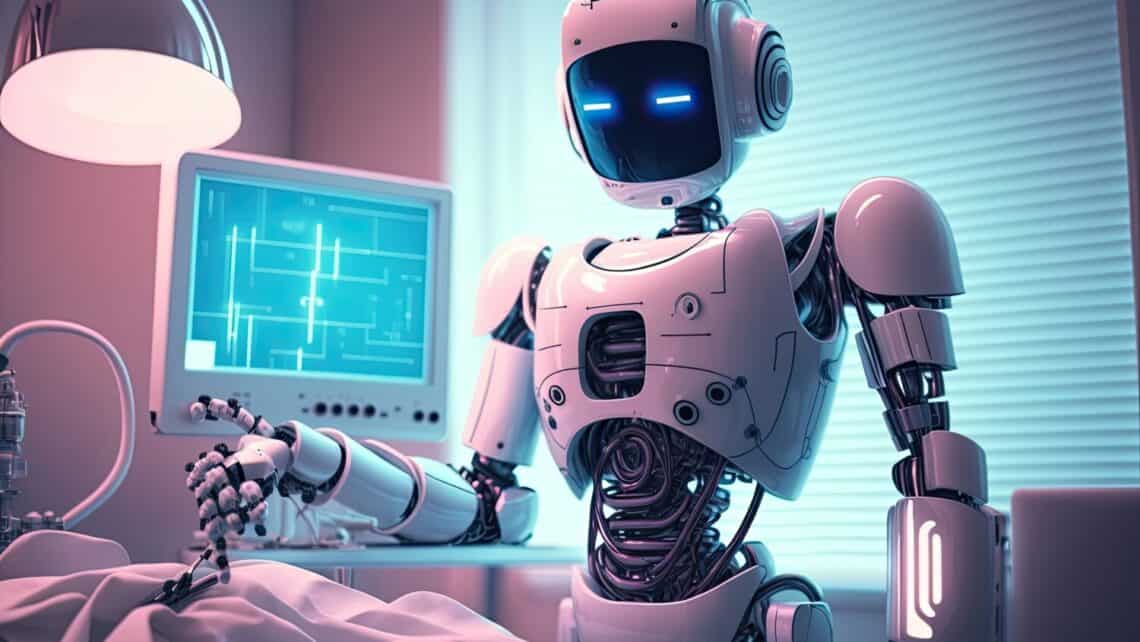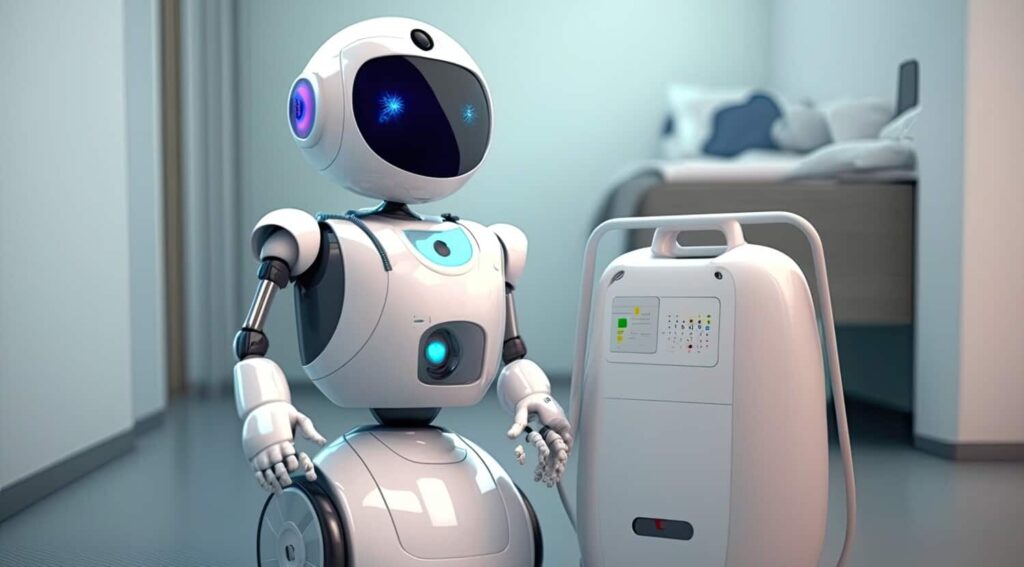Everyone is discussing Artificial Intelligence or AI these days. ChatGPT, the chat bot that has taken the world by storm has given rise to many questions, primary among them being, will AI replace dentistry.
AI is strongly believed to shape dentistry in terms of improving the diagnosis, fine tuning treatment plans and predicting treatment results. However, it cannot replace dentistry, at least in the foreseeable future. Read about AI and dentistry in our earlier blog article here.
This leads us to the next question, what about robots? While the future will not be as scary as Skynet building a horde of Terminator dentists, robots have been used in dentistry for some time. In China, according to the South China Post, a robot performed a dental implant surgery independently without help from dentists. The robot was created by a joint venture between Stomatology Hospital and Beihang University. This robot without any assistance from dental practitioners, fitted two artificial teeth into the mouth of a patient with a margin error of 0.2-0.3mm. The artificial teeth were also created through 3D printing, hence making the whole process completely digital.
Although the technicians did a practice run of the robot’s movements to calculate the depth and angles required to fit the artificial teeth, the whole process which took an hour did not need any dentists at all.

Why Do We Need Robots?
China, which has the world’s highest population with 1.412 billion at the last count needs 400 million dental surgeries every year. However, a shortage of dentists means that only 1 million surgeries take place in the year and this shortage is creating the demand to fill up the dental vacancies with robots to perform surgeries quickly and accurately.
Are Robots Currently Used in Dentistry?
Robots are currently used as assistants in dentistry like Yomi from Neocis, which is an FDA-cleared (USA) robotic system that assists dentists with implant placement. A West LA dentist has become the first to use Yomi for dental placements in the last couple of years. Read the news here. This clinic has performed over 40 implants since December 2021 using the robot.
COVID-19 hastened the importance of better hygiene and infection control. While Australia was spared from the ravages of the disease ripping through the community, there was always the fear of infections spreading through medical clinics, including dentists. This resulted in many dental clinics experimenting with robotic assistants in the USA as a solution for infection control.
SureSmile®, the competitor to Invisalign® claims to use robotic technology to bend the arch wire in their aligners. Nanorobots and nanomaterials have been a part of dentistry, assisting with disease diagnosis, maxillofacial surgeries and with temporomandibular disorders
Will Dentists Ever Be Replaced by Robots?
In a poll conducted by New Scientist Live in the UK, more than 50% of the population is fearful of artificial intelligence. A 2017 survey conducted by the highly respected Pew Research Centre of the US on “Attitudes towards a future in which robots and computers can do many human jobs”, shows more than 70% of Americans have the same fear. While this percentage might have decreased over the years, the inner most fear of humans will always be unemployment due to robots replacing jobs.
In specialised jobs like surgeons and dentists, while a robot can perform a task much more accurate than a human, a robot will only perform a task programmed by a human. Robot assistants are guided by humans in the steps required to perform a surgery or procedure.
While we may see an increase in repetitive tasks being performed by robotic assistants, it is unlikely that robots will completely replace dental practitioners.
The field of robotics is an exciting and unknown area. There is no single regulatory body around the world overseeing the development of robotics in medicine or dentistry. Hence, the need of the hour is to formulate guidelines to ensure that developments are implemented considering the wellbeing of the patients. So far, we don’t see the possibility of a fully automated dental clinic including a robotic receptionist quite soon, but that may be a question to ask ChatGPT!
Want to book an appointment?
Book online by clicking here. Call our friendly team on 3390 6100 or email us.









0 Responses
This article about the possibility of robot dentists is an interesting read. While the concept of robotic dentistry may at first sound like something out of a science fiction novel, recent advancements in artificial intelligence and robotics have made it more than just a possibility. While I agree that dental technology has helped tremendously, I still think nothing can replace the human touch and